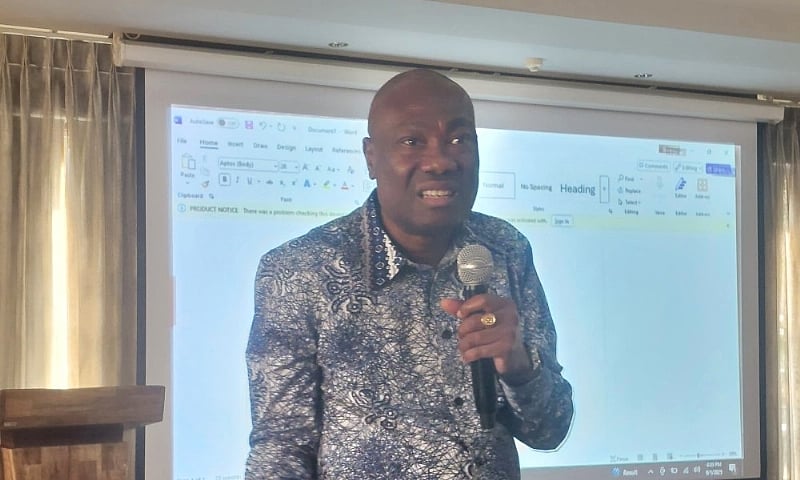The Persistent Challenge of Illegal Mining in Ghana: A Multifaceted Approach to a Deep-Rooted Problem
Illegal mining, or “galamsey,” has plagued Ghana for decades, posing a significant threat to the environment, water resources, and the country’s sustainable development. Eradicating this deeply entrenched issue requires a long-term, multi-pronged strategy that addresses the root causes, strengthens regulatory frameworks, and promotes responsible mining practices. Mr. Martin Kwaku Ayisi, the outgoing CEO of the Minerals Commission, acknowledges the complexity of the challenge and underscores the need for sustained efforts to combat the menace. While acknowledging that there is no quick fix, he highlights several initiatives already underway to formalize mining operations, enhance regulatory oversight, and foster a more sustainable mining sector.
One of the key strategies involves identifying and formalizing existing illegal mining operations. Mr. Ayisi explains that the Commission has been actively visiting mining sites and working towards bringing them into the regulatory fold. This involves providing the necessary licenses and approvals to those operating without proper authorization, thus integrating them into the legal mining framework. This formalization process is further facilitated through cooperative mining schemes, which aim to organize and regulate artisanal and small-scale miners, often a major component of the illegal mining landscape. This approach seeks to transform illegal miners into legitimate operators, enabling them to contribute to the economy while adhering to environmental and safety standards.
Central to the long-term solution is the need for comprehensive geological investigations to delineate suitable mining areas. Mr. Ayisi stresses that determining the viability of a mining area requires thorough geological assessment, a critical step that Ghana must prioritize. By identifying designated mining zones, authorities can effectively monitor and regulate mining activities, preventing encroachment into ecologically sensitive areas and reducing the incidence of illegal operations. This targeted approach will not only help resolve a significant portion of the illegal mining problem but also facilitate better tracking of gold production, discourage the use of harmful chemicals like mercury, and promote environmentally sound mining practices.
Reforming existing mining policies and laws is another crucial element of the comprehensive strategy. Mr. Ayisi points out that the current 2014 mining policy and related laws, nearly two decades old, require updates to reflect evolving global trends, national circumstances, and the rise of medium-scale mining. He criticizes the practice of granting 30-year mining leases when data indicates that most mines have a lifespan of 10 to 12 years. The government plans to reduce the duration of prospecting licenses, aligning with international standards, to encourage active work and make more areas available for small-scale miners. This reform seeks to optimize resource allocation and prevent speculative hoarding of mining concessions.
Further reforms aim to address the shortcomings of past development agreements, particularly the inclusion of stabilization clauses that hinder adaptation to changing circumstances. Mr. Ayisi emphasizes the importance of mandatory community development agreements, requiring companies to collaborate with local chiefs and allocate a portion of their profits to community projects. This initiative aims to ensure that mining activities contribute directly to the well-being of local communities, fostering a sense of shared ownership and responsibility. These reforms seek to indigenize the sector, remove unhelpful contracts, and create a more equitable and sustainable mining framework.
The Minerals Commission recognizes the critical role of collaboration and capacity building in addressing the complex issue of illegal mining. The stakeholder engagement workshop, attended by journalists from across the country, exemplifies the Commission’s commitment to partnering with the media to enhance understanding of the challenges and solutions related to illegal mining. By equipping journalists with the necessary knowledge and insights, the Commission aims to foster informed reporting and public discourse on this critical issue. This collaboration also strengthens transparency and accountability within the mining sector, contributing to a more responsible and sustainable mining future.
In conclusion, tackling the entrenched problem of illegal mining in Ghana requires a sustained, multi-pronged strategy that addresses the root causes, strengthens regulations, and empowers local communities. While acknowledging the long-term nature of the challenge, Mr. Ayisi highlights the ongoing efforts to formalize illegal operations, delineate suitable mining areas, reform outdated policies, and foster community engagement. These initiatives, coupled with enhanced collaboration and capacity building, represent a significant step towards creating a more sustainable and responsible mining sector in Ghana. The success of these efforts hinges on sustained political will, effective enforcement, and the active participation of all stakeholders, including local communities, government agencies, and the mining industry. Only through a concerted and collaborative approach can Ghana effectively address the complex challenge of illegal mining and pave the way for a more sustainable and equitable mining future.














